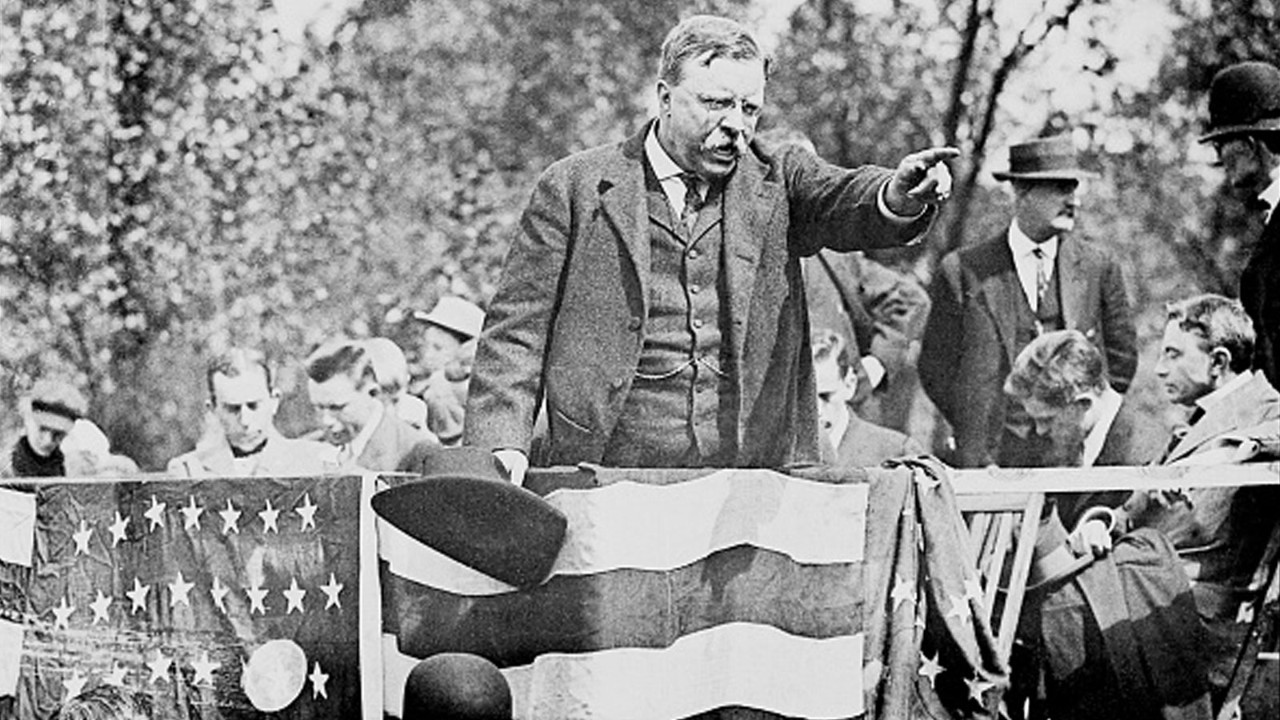
In December 1901, three months after the assassination of his predecessor as US president, Theodore Roosevelt delivered his first annual message to the US Congress. He began by paying tribute to the slain William McKinley and denouncing anarchism (a self-proclaimed anarchist had shot the president) before pivoting to business in America.
He had both praise and criticism for the era’s top entrepreneurs. The nation’s prosperity, he declared, was thanks in no small part to capitalism. ‘The captains of industry who have driven the railway systems across this continent, who have built up our commerce, who have developed our manufactures, have on the whole done great good to our people. Without them the material development of which we are so justly proud could never have taken place,’ he pointed out.
But rapid industrialisation had brought ‘very serious social problems’ and ‘real and grave evils’, he added. ‘There is a widespread conviction in the minds of the American people that the great corporations known as trusts are in certain of their features and tendencies hurtful to the general welfare.’
Roosevelt argued that these businesses should be subject to government supervision and be more transparent. It was a shot across the bows from a leader who would eventually be remembered as, among other things, a trust buster.

Why should it be a bad thing when a company has a conscience and acts on it, even if selfish reasons are a factor as well?
Woke capitalism
More than a century down the line, and the business world, especially large corporations, continues to have a highly complicated relationship with society and politics. It is an affair fraught with tension and friction, and every now and then ill feeling threatens to boil over and force decisions and actions with potentially enduring consequences. We may again be nearing such a point.
Is it fair to believe that a huge enterprise can never have an altruistic bone in its body?
This has to do with what is mockingly called woke capitalism. As is usually the case with sociopolitical controversies, it is a game of labels, nuances and spin. When the term was coined – in a February 2018 New York Times opinion piece titled ‘The Rise of Woke Capital’ – it referred to corporate activism on social and political issues (such as the Black Lives Matter movement, immigration policies, gun control, and electoral reform), often driven by self-interest. The article ends with this: ‘The win-win scenario for woke capitalism can’t last forever. But it might be quite the racket while it lasts.’
It is a cynical take on corporate America’s growing prominence as an agent of social change but it is not an isolated view. As a product of the deep divide between conservatives and liberals in the US, the debate over the role of big companies in a progressive agenda is loud and emotional. In recent times, several businesses in the US have felt the sting of cancel culture as a result of taking a stand on hot-button issues.
But why should it be a bad thing when a company has a conscience and acts on it, even if selfish reasons are a factor as well? Is it fair to believe that a huge enterprise can never have an altruistic bone in its body? Can companies be socially responsible and at the same time stay neutral amid seismic sociopolitical struggles?
Paying the price
Businesspeople have routinely been accused of not caring for anything other than the bottom line. But now there is apparently a price to pay when they take sides in society’s major disputes. To be more precise, they risk being attacked for supporting the ‘wrong’ causes.
It is myopic to think that this conundrum is specific to the US. The fight for justice and equality is everywhere and endless, and the middle ground is scarce.
There are no quick, universal fixes for our complex woes. It takes all-round hard work, understanding and compromise. Meanwhile, sincerity and good intentions must be allowed to prevail. If a company sticks to the facts and is sincere and consistent in wanting to make the world a better place, it should just carry on caring.



